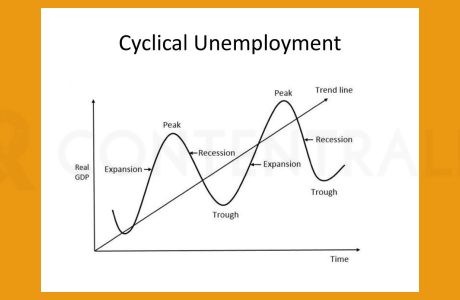When it comes to being a police officer, there is one thing that people think about apart from the danger. And that is: how much do police officers make?
You see, the job of a police officer is full of risks. And it is obvious that people who are in this service are financially secure— not only for themselves but also for their families.
So, if you are planning to become a police officer, you might be eager to know about the sum, right? Do not worry— I have you covered!
So, keep on reading this blog till the end to learn everything about how much money police officers make…
How Much do Police Officers Make in 2024?

Among society’s frontline workers are police officers. They must come forward and take charge even in times of emergency to guarantee that everyone is secure and that law and order are upheld. Additionally, their pay would justify their employment because they prioritize the safety of others above their own.
If I tell you that a police officer’s beginning pay in the United States of America will be more than $50,000 in 2024, you won’t be shocked. You did really read correctly!
As of right now, the average base pay for a police officer in the United States is $65,308 annually. But this might be anything from $55,000 to $80,000, depending on the city.
Besides, when it comes to the police officer’s pay, the year of experience also matters.
For example, you may need to sell for an average yearly pay of $55,000 if you have less than a year of experience.
However, more than ten years of expertise will almost certainly secure you a salary of above ninety thousand dollars each year.
As per the 2023 report of the Bureau of Labor Statistics, USA, the hourly wage of the police officers is as follows:
| Percentile | 10% | 25% | 50%(Median) | 75% | 90% |
| Hourly Wage | $ 21.73 | $ 26.33 | $ 34.75 | $ 44.43 | $ 53.70 |
| Annual Wage | $ 45,200 | $ 54,770 | $ 72,280 | $ 92,410 | $ 111,700 |
Highest Paying Cities Near the US for Police Officers

As per Talent.com, Washington is the place where police officers earn the most. To be exact, they earn about $87,176 annually.
Here are the top ten places on that list:
| State | Salaries |
| Washington | $87,176 |
| California | $81,023 |
| Minnesota | $79,957 |
| Connecticut | $75,366 |
| Oregon | $73,530 |
| Alaska | $70,221 |
| Colorado | $70,202 |
| Wisconsin | $67,065 |
| Utah | $63,829 |
| Idaho | $63,648 |
What Does a Police Officer Do?

Firstly, what really is the task of a police officer? Well, let me brief you on that!
A police officer’s responsibilities include both active and administrative work.
At the station, a police officer writes reports, confers with witnesses and suspects, obtains warrants, and responds to public queries.
Furthermore, a police officer’s responsibilities go much beyond the police station. They investigate accidents and crime sites, respond to emergency aid requests, and detain criminals.
While on the job, a police officer employs a range of abilities, such as listening, critical thinking, and collaborating with other law enforcement personnel, including peace officers.
To diffuse situations, a police officer uses sound judgment and prompt response. In addition, they can be in charge of maintaining order in particular areas to protect locals and property.
Is Being a Police Officer a Good Career?

You have read about the salary of a police officer, right? There is one last thing you should remember.
The national average wage for a police officer in 2020 was $67,600, which was marginally more than the average compensation of $51,960 for all jobs.
In 2022, patrol officers made an average salary of $65,790. The highest 25% of earners received $84,520 in that year, while the bottom 25% received $50,210. This merely demonstrates how quickly salaries in this industry have been rising.
Thus, this can be a fantastic moment if you want to be a police officer! In addition to the pay, there are a number of other factors that make becoming a police officer a desirable career option.
Benefits of Being a Police Officer

Here are some of the major benefits of a police officer in the USA:
- 27 paid time off following six years of employment
- Unrestricted sick leave with full compensation
- Choosing health care benefit plans Dental, prescription, and vision coverage
- Fund for annuities 401K, I.R.A., and Deferred Compensation Plan.
- 22-year service requirement with optional retirement at half salary $12,000
- Variable Supplement Fund each year (after retirement)
- Outstanding chances for promotion
Promotional Opportunities

Firstly, promotion exams for the levels of Sergeant, Lieutenant, and Captain are frequently offered by the Department.
All positions above Captain and promotion to detective (note: you do not have to be a police officer to be a detective!) are determined by merit. Members have the ability to make much more money at each of these rankings.
Military Veterans

Secondly, the police department, especially the NYPD, actively recruits veterans because they have a special place in their hearts for those who have served.
Additionally, they respect their training and talents, and believe that veterans will bring with them their own managerial experience.
Additional benefits available to military veterans include:
- During the first two years, veterans are eligible to receive benefits under the GI Bill in addition to their pay.
- Scores from the Police Officer Exam are retained on file indefinitely.
- Veterans have six months from the time they leave the U.S. Armed Forces to begin the hiring process.
- Veterans may increase their maximum hiring age by four years or by six years if they served in a time of war or other national disaster. This is only applicable to veterans under 40.
- Three years of their military service may be redeemed by veterans and utilized toward their retirement from the NYPD.
Furthermore, in addition to their vacation time, active reservist officers are entitled to 30 paid military days annually.
Work Hours

Police officers rarely work regular 9–5 shifts. Their work schedule may be more erratic.
For instance, a police officer might work late into the night or early in the morning so they can spend the day with their family.
Besides, some firms provide their police officers with a weekly three-day weekend in exchange for four 10-hour workdays.
Job Security

This is probably one of the most important things that you need to know about. Indeed states that “this career has a 7% projected growth rate, which is about as fast as the average for other careers. If you become a police officer, you’re likely to find employment in both rural and urban areas.”
Community

Additionally, a police officer’s actions might affect the community they serve. They seek to lower crime rates while defending the area or the community as a whole.
Furthermore, a police officer can prevent criminal activity in the community by apprehending individuals and overseeing investigations.
How to Become a Police Officer in 2024?

So, if you are happy with what you have learned about the salary of police officers, it is time to learn how to become one.
It is 2024 and, obviously, the steps have changed a little. Here are the things that you will have to go through to become a police officer in 2024:
1. Complete Education
Firstly, you must have completed at least your high school education or earned a GED in order to apply to the police academy and seek a career as a police officer.
Besides, it is occasionally necessary for police officers to have an associate’s or bachelor’s degree in a relevant discipline, such as criminal justice. This criterion might be waived for those having a military background.
2. Other Requirements
Secondly, to work as a police officer, you might need to fulfill additional prerequisites. Among them are:
- It’s possible that you must be at least 18 or 21 years old.
- You must possess a current driver’s license and a spotless driving record because your position may require you to operate a police car.
- Passing a criminal background check and a medical and physical examination are also required.
- To make sure you can act and react appropriately under pressure, you must pass a psychological test.
3. Pass Law Enforcement Exam
Thirdly, becoming a police officer may also mean passing a law enforcement test. These tests frequently consist of the following:
- A written exam that includes multiple-choice, short essay, and true/false questions will assess your understanding of the position.
- These could assess your knowledge of math, grammar, reading comprehension, reasoning, and decision-making in real-world situations.
- Your general presentation and communication skills will be tested in an oral exam, which could include an interview.
- You can also be asked to compose an essay to assess your logical reasoning, clear thought expression, and ability to cite relevant information to back up your assertions.
4. Police Academy Training
Fourthy, the police academy is a prerequisite for becoming a police officer. The following will be covered in your training:
- Instruction in the classroom: This will give a comprehensive overview of law enforcement, covering techniques for conducting criminal investigations, laws and regulations, methods for making arrests and holding people, and strategies for public safety and police in general.
- Developing your abilities: You will hone abilities including communication, negotiation, and stress management during your course.
- Field training: This will cover administrative responsibilities, firearm safety, defence strategies, vehicle operation, appropriate use of force, and handling hazardous materials.
5. Apply for Jobs.
Lastly, you can start applying for positions as a police officer once you’ve finished your schooling, passed your law enforcement exam, and undergone police academy training.
Other job options are available to you, such as investigator, K-9 representative, sheriff and her deputy, officer of the state police, and officer of the highway patrol.
Wrapping It Up!
In case you wanted to know how much police officers make, I hope that this blog has been helpful to you. If there are any other questions that you might have related to the same, please feel free to let me know. All that you need to do is scroll down until you reach the bottom of the page. Then, leave your comments in the box below. I will be there to answer them all for you!
Additional Reading:






















